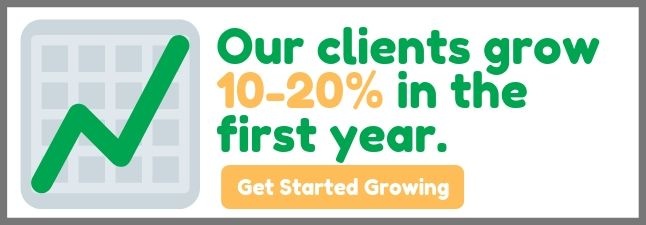Posted by Todd Hockenberry ● Mar 19, 2025
Build Competitive Advantage With Relationship Marketing
Something I've seen play out many times with our manufacturing clients: their entire business transforms when they shift from thinking about leads to thinking about relationships.
I've been helping industrial and manufacturing companies grow for over 15 years, and I can tell you that relationship marketing isn't just some fluffy concept—it's the cornerstone of sustainable growth.
What exactly is relationship marketing? Simply put, it's the deliberate practice of building genuine connections with your customers instead of just trying to sell them something. It's showing up consistently to help them solve problems, even when there's no immediate sale in sight.
When you embrace this approach, your customers stick around longer, buy more, and start selling for you. A client told me last month that their newest $2 million customer came directly from a referral. That's the power of relationships at work.
The contrast with AI-generated marketing couldn't be starker. Don't get me wrong—I'm not anti-technology. We use plenty of marketing automation tools with our clients (I used it to help me organize this post). But there's a world of difference between using technology to enhance human connections and replacing them entirely.
I was reviewing a client's AI-generated email campaign last week. While it was grammatically perfect, it completely missed the mark on understanding their customers' challenges. It lacked the insight from talking to people, understanding their pain points, and empathizing with their struggles.
Do you know how you can build a relationship marketing approach that works?
Start by really knowing your customers. I'm not talking about superficial demographic data but deeply understanding their challenges, goals, and the metrics they're measured on. One of our clients spent three months interviewing their top customers before revamping their content strategy. The insights they gained transformed their messaging and doubled their conversion rates.
Next, create content that genuinely helps. Your expertise is valuable—don't hoard it! You build tremendous goodwill when you freely share insights that help your customers solve problems. I've seen companies completely reposition themselves as industry thought leaders by consistently sharing their knowledge.
Could you connect your customers with each other? Some of the strongest relationships form when you bring together people facing similar challenges. One of our manufacturing clients hosts quarterly roundtable discussions for their customers, and these events have become their most powerful retention tool. Their customers literally won't leave because they value the community so much.
Personalize based on actual conversations, not just data. Yes, use your CRM to track preferences and interactions, but make sure you regularly have real conversations too. The most effective sales teams we work with block time every week for relationship-building calls that have no sales agenda.
Listen actively and respond thoughtfully. When customers give feedback—positive or negative—make sure they know they've been heard. One client implemented a "feedback to feature" program where they publicly tracked how customer suggestions influenced their product roadmap. Their customers love seeing their ideas implemented.
Be consistently present, not just when you want something. This means regular check-ins, sharing relevant industry news, celebrating their wins, and being there when challenges arise. Relationships are built in these small moments, not just during sales conversations. Pick. Up. The. Phone.
I've seen firsthand how this approach transforms businesses. One of our manufacturing clients struggled with a commoditized product line and brutal price competition. After refocusing on relationship marketing, they developed such strong customer loyalty that they could maintain their pricing even when competitors dropped theirs by 15%. Their customers explicitly told them, "We stay because of the relationship."
This isn't theory—it's a practical business strategy that delivers results. When you invest in relationships, you build an asset that competitors can't easily duplicate. Technology changes, products become commoditized, but strong relationships endure.
I challenge you to look at your marketing through this lens: Are you just pushing messages out or building connections? Are you talking about what matters to your customers or just what matters to you? Are you showing up consistently, or only when you want something?
The businesses that thrive long-term aren't necessarily those with the biggest marketing budgets or the flashiest technology. They're the ones who genuinely care about their customers' success and demonstrate that care through every interaction.
That's relationship marketing—your most sustainable competitive advantage in a world where AI can duplicate almost everything except authentic human connection.
Topics: Sales, Industrial Executive





